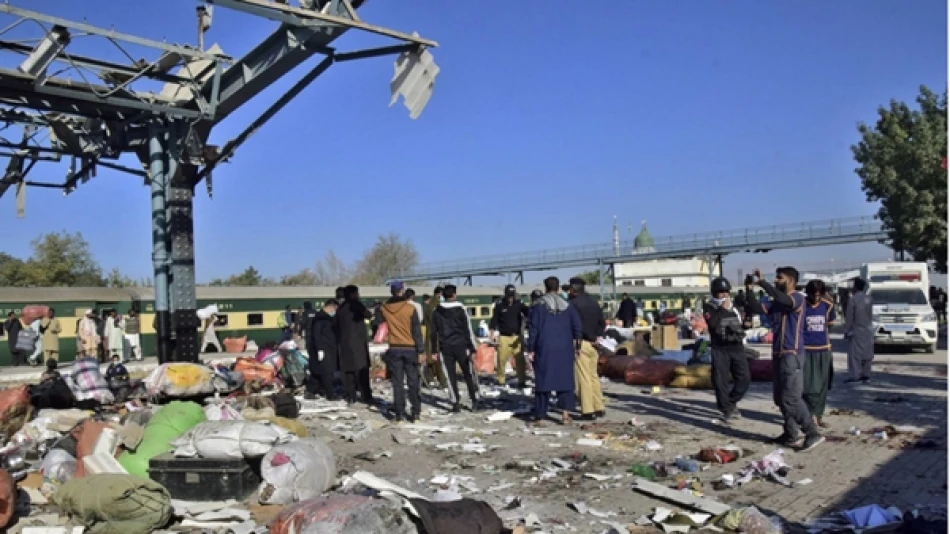
Train Derailment in Pakistan Follows Explosion Incident
Pakistan's Rail Infrastructure Under Siege as Balochistan Train Bombing Injures Four
A homemade explosive device derailed five carriages of a Peshawar-bound passenger train in Pakistan's restive Balochistan province on Sunday, injuring four people in what marks the latest assault on the country's already vulnerable railway network. The attack near Quetta underscores the persistent security challenges facing Pakistan's critical transportation infrastructure and highlights the broader instability plaguing the resource-rich southwestern province.
The Attack: Timing and Location Reveal Strategic Targeting
The improvised explosive device detonated on railway tracks near Spezand station, approximately 25 kilometers from Quetta, Balochistan's capital and largest city. The timing—shortly after 9 AM local time when the train had just departed Quetta—suggests deliberate planning to maximize disruption while the train carried a full passenger load.
Pakistani railway officials confirmed that the blast caused five carriages to derail, though the relatively low casualty count of four injured suggests either the device's limited power or the train's moderate speed during departure from the urban area.
Balochistan: Pakistan's Security Blind Spot
This incident represents the latest in a recurring pattern of attacks targeting this particular rail route, according to local media reports. Balochistan province, which borders both Afghanistan and Iran, has long been a theater for insurgent activity, with separatist groups frequently targeting infrastructure projects they view as exploitative of the region's natural resources.
Strategic Importance of the Route
The Quetta-Peshawar railway line serves as a vital artery connecting Pakistan's southwestern and northwestern regions, facilitating both passenger travel and freight movement. Attacks on this route not only disrupt daily commerce but also signal broader challenges to Pakistan's ability to maintain secure transportation networks across its most volatile territories.
Economic Implications Beyond the Blast
Railway attacks in Balochistan carry implications that extend far beyond immediate casualties. The province sits at the heart of the China-Pakistan Economic Corridor (CPEC), a $62 billion infrastructure initiative that Beijing views as crucial to its Belt and Road strategy. Persistent security incidents raise questions about Pakistan's capacity to protect major infrastructure investments and could potentially affect future international development partnerships.
Infrastructure Vulnerability as Economic Liability
Pakistan's railway system, inherited from British colonial infrastructure and chronically underfunded, already struggles with maintenance and safety issues. Security incidents compound these challenges, potentially deterring both domestic and international investment in transportation modernization projects that the country desperately needs for economic growth.
Regional Security Patterns
The Balochistan railway attack fits within a broader regional context of infrastructure targeting by insurgent groups. Similar patterns have emerged in Afghanistan, where Taliban forces historically targeted railway and road projects, and in parts of India's northeastern states where separatist movements have employed comparable tactics.
However, Pakistan's situation differs in that Balochistan's insurgency intersects with international development projects, creating a complex dynamic where local grievances meet geopolitical investments. This convergence makes railway security not just a domestic concern but a factor in Pakistan's international economic relationships, particularly with China.
Most Viewed News

 Layla Al Mansoori
Layla Al Mansoori






